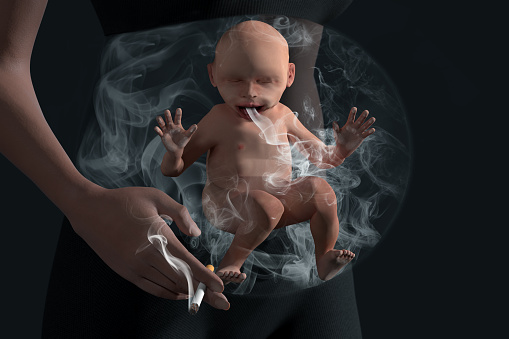Management of Substance Abuse in Pregnancy

Abuse in Pregnancy – The Miracle of Life is a journey that begins with the nine-month waiting period. As soon as you hear a doctor’s words or see the faded pink double lines on a test, a life-changing realization begins. With a new person in the womb, this is an important time to think about how your current lifestyle affects the baby seriously.
Abuse in pregnancy use is probably the first problem to consider. If the mother drinking, injecting or smoking habitually in the past, the baby can develop an addiction, leading to several medical problems. Along with regular doctor’s appointments, ultrasounds, and other visits to medical facilities, interacting with doctors can put a dependent mother on the road to recovery.
In some states where drug use is high, such as California, infant exposure to illicit substances, whether through the placenta or breast milk, has nearly doubled since 2008. If the mother is dependent, it has increased. Stopping the “cold turkey” may not be possible, and treatment may not be possible. Options should undertake with the help of a professional.
Table of Contents
How to know if someone is Addicted
Individual addiction cases are always different. Although many perpetrators have had homelessness, dysfunctional relationships, poverty, or mental illness in the past, there is no single treatment for substance abuse. And also, drug addicts can come from any environment and under any circumstance. That said, the symptoms of use are usually universal.
Common symptoms of substance abuse in pregnancy include:
Poor work performance (delay, bad reviews, lack of interest in duties)
Changes in appearance and lack of care
Increased privacy requirements
Obvious relationship changes
Requests to borrow money
Decreased appetite and weight loss
Defensiveness or irritability
Poor skin tone and clarity of the eyes
Common symptoms of alcohol addiction are:
Preferably drink alone or in secret
Insistence on drinking despite personal problems associated with it
Depression, irritability, and mood swings
Using alcohol as a coping mechanism
Denial of addiction
Substances commonly Abused
Interference with fetal growth can have permanent consequences. Because almost every drug has a unique set of side effects and long-term repercussions, it might be challenging to determine the precise impact on every pregnant woman and unborn child. To complicate matters further, many fetuses that develop into abuse in pregnancy hosts expose to more than one substance simultaneously.
Some of the most commonly used substances include:
Nicotine
the tobacco
Alcohol
Prescription drugs
Narcotics and illicit drugs
Certain medications can use safely during pregnancy. Doctors should be consulted about the use of dietary supplements, aspirin or ibuprofen, and other prenatal vitamins. Although they can technically consider “safe,” many over-the-counter medications have doses too high to be taken during pregnancy.
Consequences of Drug Addiction
Not only are the physical, mental and emotional consequences of addiction for pregnant women numerous, but there are also for society. And also, stigma is one of the main barriers to treatment for female drug addicts. Many women who seek medical care feel judged or fall at the hands of malpractice due to the moral outrage and disheartening discussions surrounding the issue of Abuse in pregnancy.
Frequently Abused Substances
Therefore, disruption of fetal growth can have permanent consequences. Because almost every drug has unique side effects and long-term effects, it can be challenging to determine the exact impact on every pregnant woman and unborn child. To further complicate matters, many fetuses that develop into abusive hosts expose to more than one substance at a time.
Some of the most commonly used substances are:
nicotine
the tobacco
alcohol
Prescription drugs
Narcotics and illegal Drugs
Certain medicines can be used safely during pregnancy. However, physicians should consult regarding the use of supplements, aspirin or ibuprofen, and other prenatal vitamins. While technically “safe,” many over-the-counter drugs have too high doses to be taken during pregnancy.
Consequences of Drug Addiction
The physical, mental, and emotional consequences of addiction for pregnant women are numerous and societal. Stigma is one of the key barriers to treatment for drug addicts. Many women seeking medical assistance feel judged or fall into the hands of wrongdoing because of the moral outrage and discouraging discussions surrounding addiction and pregnancy.
Also Read: How Mental health Affects your Skin?


